24, September 2020
Human Rights Watch urges Biya regime to stop using COVID-19 and anti-terror law as pretext to quell dissent 0
Cameroon authorities banned demonstrations after the opposition party Cameroon Renaissance Movement (Mouvement pour la renaissance du Cameroun, MRC) encouraged people to take to the streets over the government’s decision to call regional elections, Human Rights Watch said on Monday.
On September 11, 2020, the governors of the Littoral and Centre regions banned public meetings and demonstrations indefinitely. Three days later, Territorial Administration Minister Paul Atanga Nji, in a letter to the two governors and the governor of the West region, warned that law enforcement forces would break up unauthorized demonstrations. He said that the governors should arrest anyone organizing or leading demonstrations, claiming that protests would endanger lives during the Covid-19 pandemic. On September 15, the communication minister warned political parties that protests could be considered “insurrection” and that illegal demonstrations across the country would be punished under the anti-terror law.
“These steps are a thinly veiled attempt by the Cameroonian government to use the Covid-19 pandemic and the draconian anti-terror law as a pretext to quell the right to assemble,” said Lewis Mudge, Central Africa director at Human Rights Watch. “Cameroon’s authorities should protect and facilitate the right to assemble, not seek to curb it.”
These measures came after President Paul Biya announced on September 7 that Cameroon’s first regional elections would be in December. On September 8, Maurice Kamto, the MRC leader, called for peaceful protests on September 22 against holding the elections. Seven other opposition parties and civil society organizations have joined Kamto’s call for peaceful demonstrations. Opposition parties have multiple concerns that they cannot be conducted freely and fairly without reforming the electoral code and addressing the lack of security in the Anglophone regions.
Human Rights Watch conducted phone interviews between mid-August and early September with 15 leaders and members of opposition parties, as well as 5 representatives from civil society and human rights groups.
The Cameroonian government started lifting Covid-19 restrictions in May, allowing bars, restaurants, and nightclubs to reopen. In June, it allowed schools and other training centers to reopen, as well as churches and mosques. The efforts to target the opposition-led demonstrations over Covid-19 appear to be arbitrary, Human Rights Watch said. On September 16, the MRC issued a note providing guidance to all members and supporters who are planning to participate on September 22 on how to ensure peaceful demonstrations and curb the spread of Covid-19 by wearing a face mask.
Other opposition-led meetings and demonstrations have been banned in Cameroon in the last 18 months. In April 2019, the authorities banned a week of demonstrations planned by the MRC across the country. Local authorities recently prohibited two private meetings planned by the party in Maroua, Far North region, on August 9, and in Nkongsamba, West region, on August 15, citing concerns around Covid-19 and general public order.
The Nkongsamba meeting was to be a private meeting at the party headquarters and should not have been subject to a public order ban. In Maroua, where the meeting was to be held in a hotel, the local authorities prohibited the meeting ostensibly on health grounds, although party leaders said they were taking preventive measures to avoid the spread of the Covid-19, including respecting the limit of 50 participants, as required by law. Party leaders told Human Rights Watch that authorities have allowed similar meetings in both cities by the governing Cameroon People’s Democratic Movement.
On September 19, the headquarters of the opposition party Cameroon People’s Party (CPP) in Yaoundé was surrounded by over 30 policemen and gendarmes. “The Yaoundé District Officer claimed that the CPP was holding a public meeting without declaration, but we informed him that we were holding our regular weekly meeting whose participation is limited to our members,” Edith Kahbang Walla, known as “Kah Walla,” CPP president said in a statement published the same day. “This is an umpteenth violation of the law and attempt to intimidate us.” After a standoff of about one hour, CPP members were allowed to leave.
Human Rights Watch has previously documented that Cameroon’s government has used the pandemic as a pretext to settle scores and punish the opposition. In May, the authorities arrested several volunteers from the Survival Initiative, Kamto’s fundraising initiative to respond to the health emergency, as they handed out protective masks and sanitizing gel in Yaoundé, the capital. They were charged with rebellion, then released on May 15.
MRC spokesperson Biboun Nissack told Human Rights Watch that the government’s recent ban on demonstrations “threatens to force our party underground.”
Cameroon’s constitution guarantees freedom of assembly. Cameroonian law requires organizers to notify local authorities seven days before a demonstration. While freedom of assembly is not absolute, and restrictions including those aimed at protecting public health are permissible, any such measures must not only have a legal basis but be strictly necessary and proportionate to achieve the objective and not discriminate against particular groups.
Broad, blanket bans such as that invoked by the Cameroon government, in particular in response to political organizing by opposition parties, do not meet these criteria. On March 16, United Nations human rights experts warned that “Emergency declarations based on the Covid-19 outbreak should not function as a cover for repressive action under the guise of protecting health, and should not be used simply to quash dissent.”
The anti-terror law, promulgated in December 2014 as Cameroon struggled to address the escalating threat posed by the Islamist armed group Boko Haram, has been widely criticized, including by Cameroonian and international rights groups and opposition parties, for its overbroad definition of terrorism, the provision of the death penalty, and for being used to silence the opposition, civil society, and the media.
This recent crackdown on freedom of assembly also follows a well-documented pattern of politically motivated arrests and prosecutions of opposition party members and activists, including MRC vice president, Mamadou Mota.
“When government authorities threaten to treat exercise of the right to peaceful protest as an act of insurrection, they are attacking the fundamentals of a society based on human rights and the rule of law,” Mudge said. “Basic freedoms and rights – guaranteed not only under Cameroon’s international obligations, but also in its constitution – are at risk, and if this crackdown leads to wider protests, the excessive use of force and ill-treatment could dramatically escalate.”
Source: Todaynewsafrica
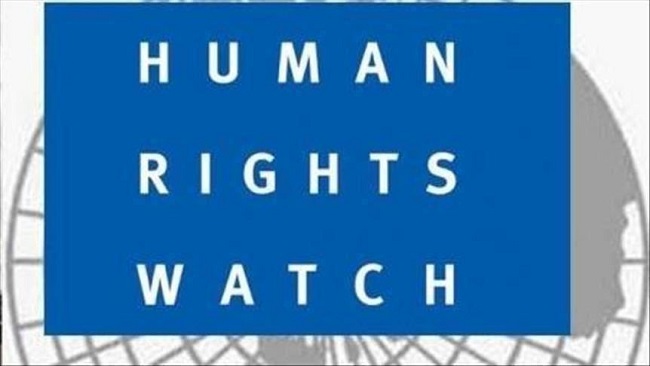
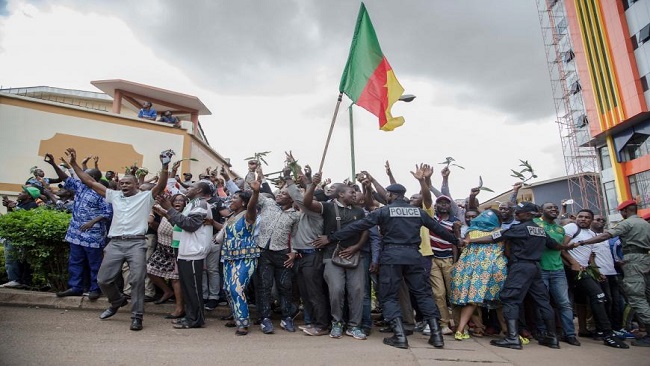
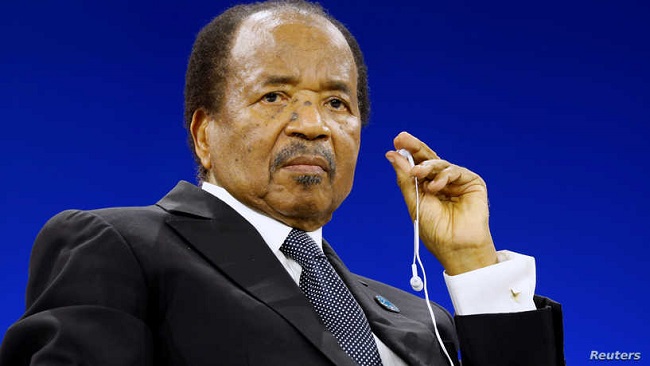
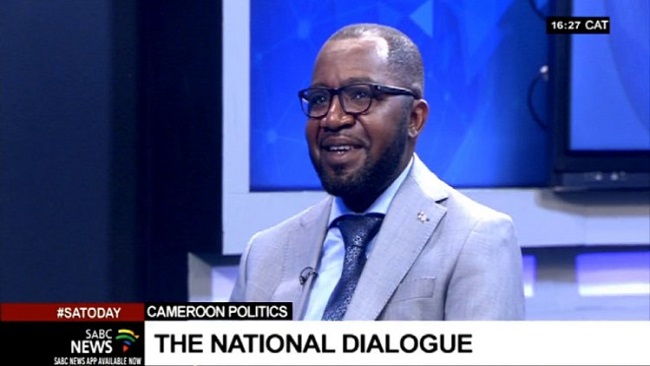

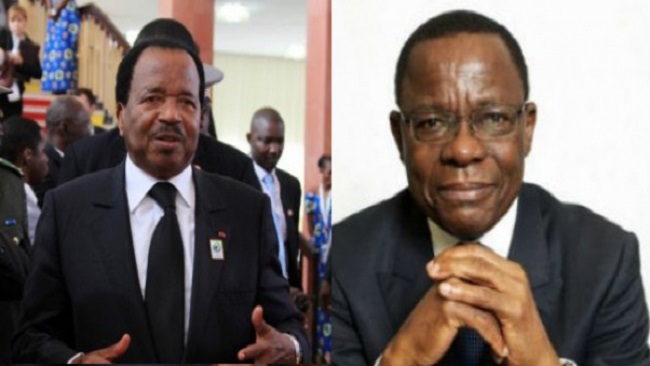


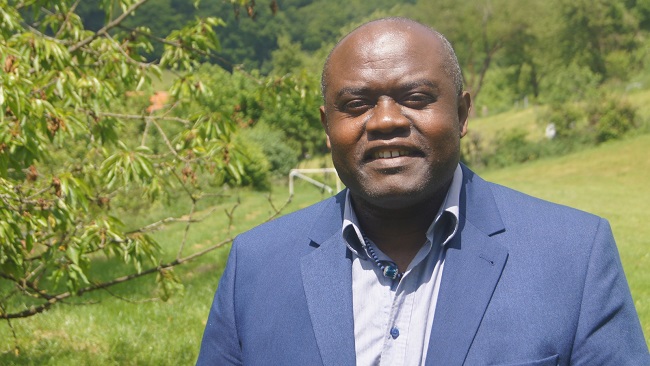










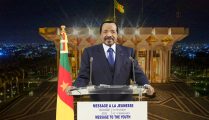







24, September 2020
Yaoundé starts candidacy submission for maiden regional elections 0
Cameroonian authorities announced Tuesday the start of the candidacy submission for the country’s pioneer regional elections scheduled for Dec. 6.
The country’s national electoral body Elections Cameroon (Elecam) is expected to publish the lists of political parties and candidates vying for the elections after the submission.
“The organisational and logistical aspect is ready. The elections would be a historic moment and a turning point in our democracy,” Essousse Erik, director general of Elecam, told reporters in the capital city Yaounde.
According to Cameroonian constitutional law, the regional council is the deliberative assembly for the affairs of the region. The regional elections, contained in the constitution for many years, have however never been organized.
The regional elections are deemed by local observers to be a measure to accelerate decentralization and to help end a separatist crisis in Cameroon’s two English-speaking regions, the Northwest and the Southwest.
Cameroon’s two main opposition parties, Cameroon Renaissance Movement (CRM) and Social Democratic Front (SDF) have said they will boycott the elections, citing “biased” electoral code and insecurity in the Anglophone regions.
Source: Xinhuanet